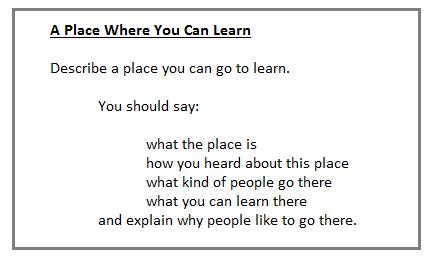The model essay from February 2017 was reported by IELTS students appearing in their IELTS writing task 2 test this month. It is an opinion essay, otherwise known as an agree/disagree essay or an argumentative essay. Following current topics used in 2017 is essential for success in IELTS.
Also please see that I’ve put some useful links for you at the bottom of the page to help you with your IELTS writing task 2 essay.
IELTS Essay Question February 11th, 2017 (Academic)
It is better for the students to live away from the home during their university studies rather than staying with their parents. To what extent do you agree or disagree?
IELTS Model Essay Feb 2017
While some people think that students ought to live alone whilst studying at university, it is believed by others that it is better for them to remain living at home. In my opinion, I think students benefit from living alone unless their finances prevent it.
Firstly, one of the main reasons why it is advantageous for students to live alone is that they become totally independent of their parents and able to think for themselves. University is a time for students to spread their wings and try new ideas or ways of thinking and learn to cope with making life changing decisions. By living alone, without the influence of their parents, they develop rounder, decisive characters able to function well in the world.
Another advantage to students fleeing the parental nest is that they learn to manage money. Most students see university as a stepping stone to adulthood and so by learning to live on a budget, they develop the skills needed once they are earning a salary and balancing their finances. Renting property also comes with responsibilities to both landlords and housemates, and this is a further lesson to learn in useful life skills.
Finally, however, regardless of how beneficial living alone might be for university students, it might be financially impractical for some. For a small proportion of university students, their finances might require them to stay at home for as long as possible until they are finally able to support themselves through paid work.
In conclusion, while it might not be feasible for all students, living away from parents helps university students develop strength of character and useful life skills needed for when they enter working life.
How to Write Your IELTS Essay:
- Spend time anaylising the essay question and brainstorming. Choose your position (your point of view) and select the best ideas. See this page about how to plan your essay properly: IELTS Essay Planning Tips
- aim to have either 4 or 5 paragraphs in total. See this page: How many paragraphs in an IELTS essay. Your essay MUST be over 250 words. There is no upper word count. See this page: How long should your IELTS essay be?
- Use a range of linking words in your essay. The examiner will mark them and it will affect your score if you spelling them wrong or if you don’t know a good range. See this page: IELTS Linking Words
- Before your test, prepare ideas for trending topics in IELTS this year. See this page: IELTS Essay Questions 2017. This page gives a list of essay questions used so far in 2017.
- The essay above is an Opinion Essay which means you need to give your opinion. See this page about how you express your opinion correctly: How to Give your Opinion in Writing Task 2
- If you are taking the GT test, see this page about writing differences: GT Writing Test Differences
- If you can’t hit the score you want in IELTS writing, GET TRAINING from an expert. Purchase my advanced lessons below to help you
Main IELTS Pages
Develop your IELTS skills with tips, lessons, free videos and more.
- IELTS Listening
- IELTS Reading
- IELTS Writing Task 1
- IELTS Writing Task 2
- IELTS Speaking
- Vocabulary for IELTS
- Band Scores Explained








